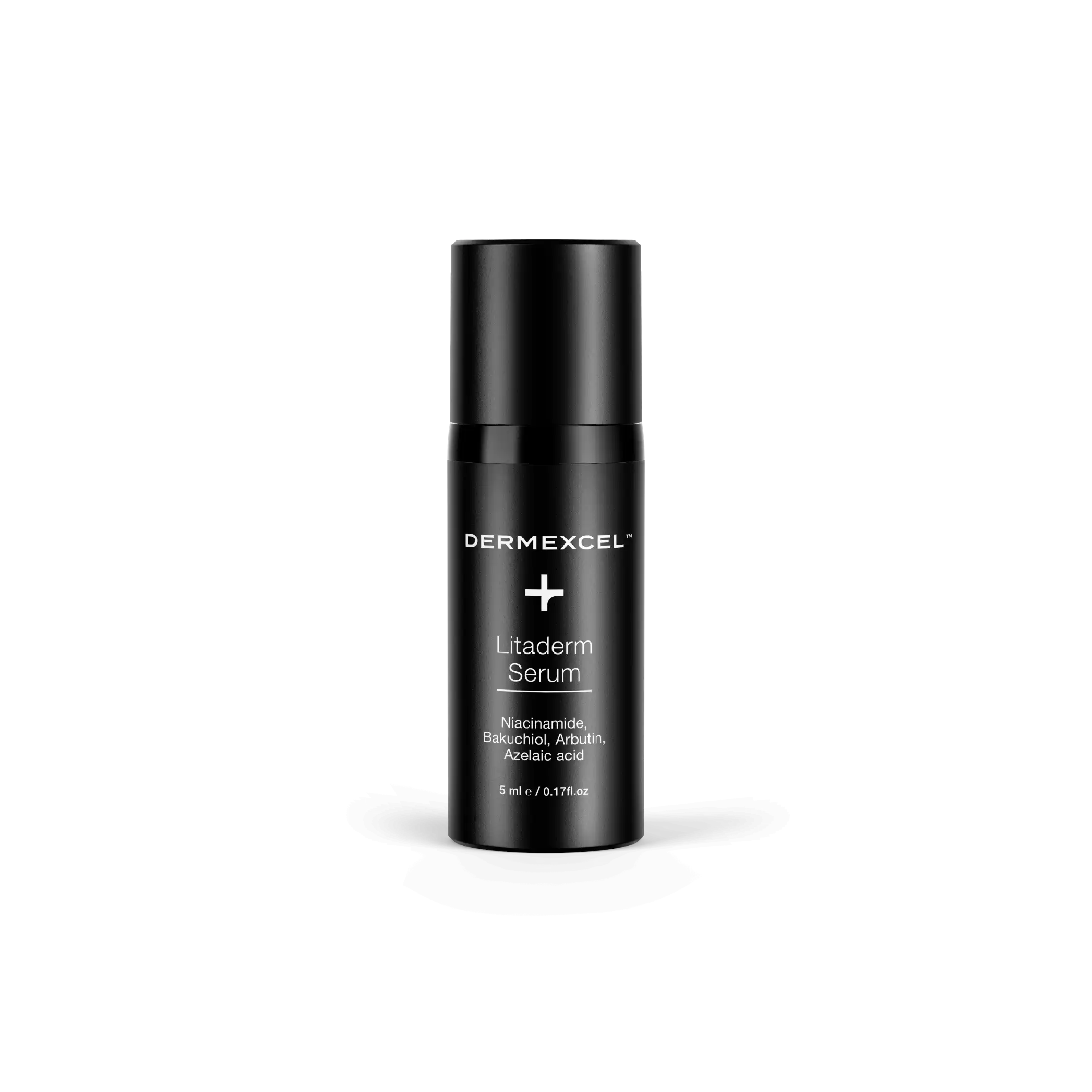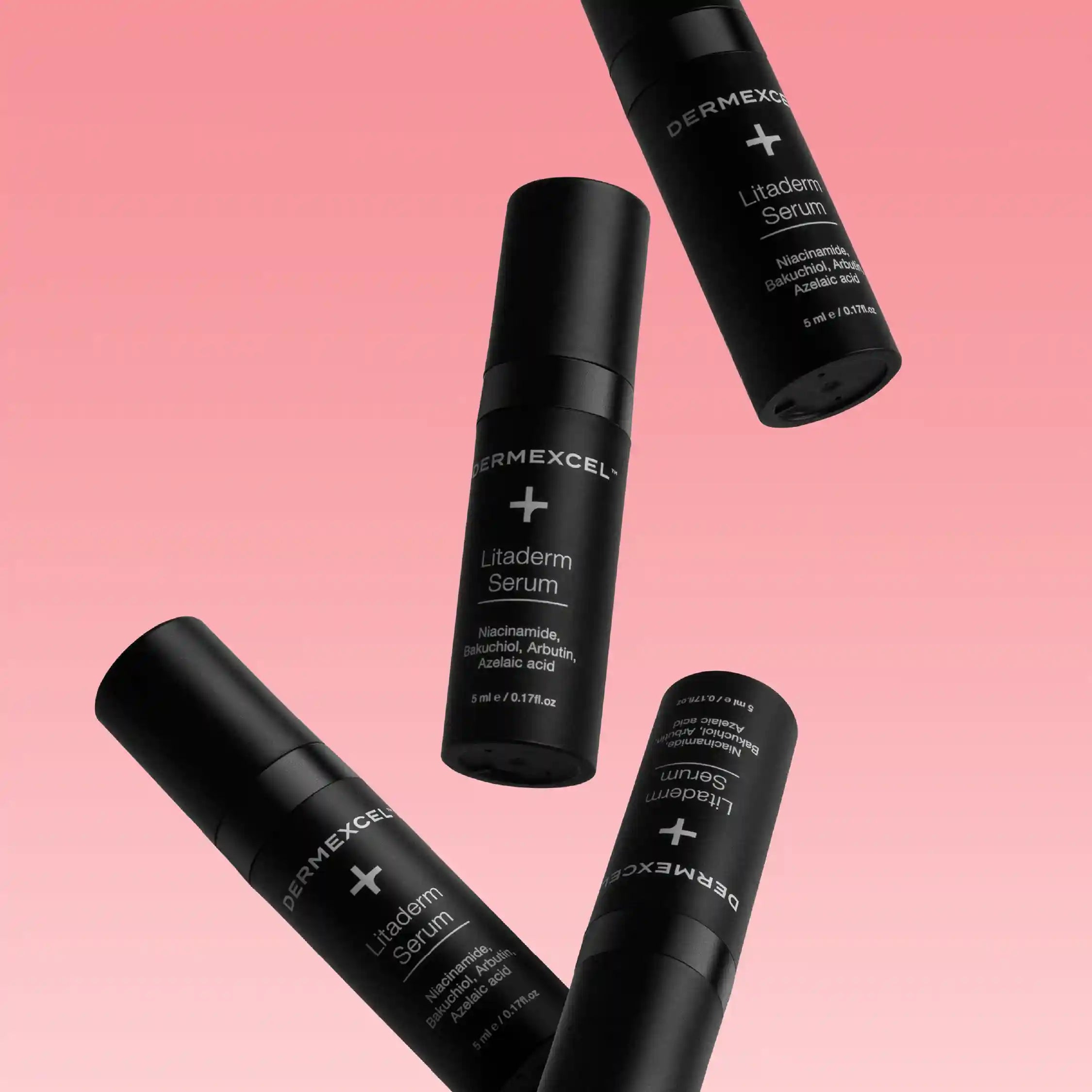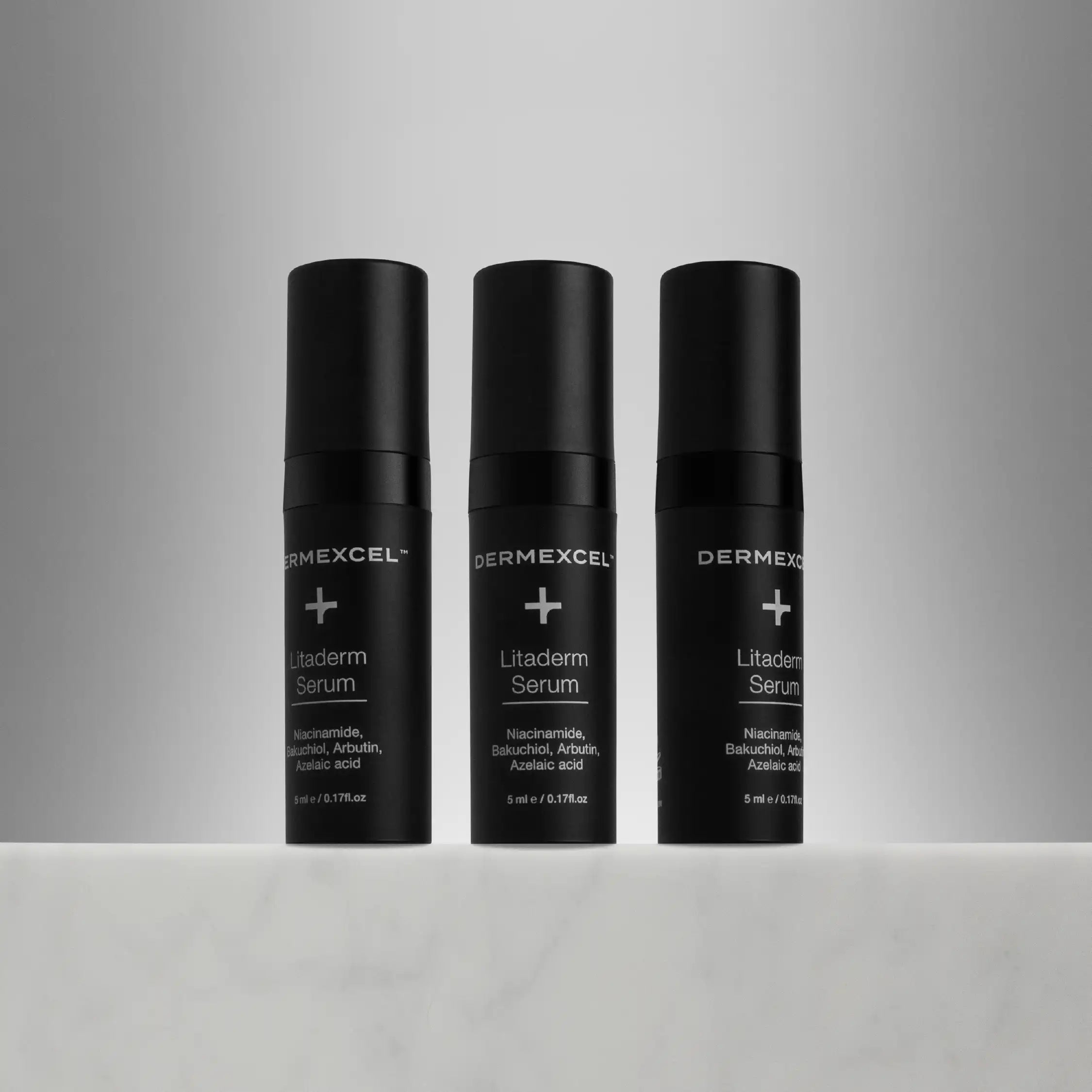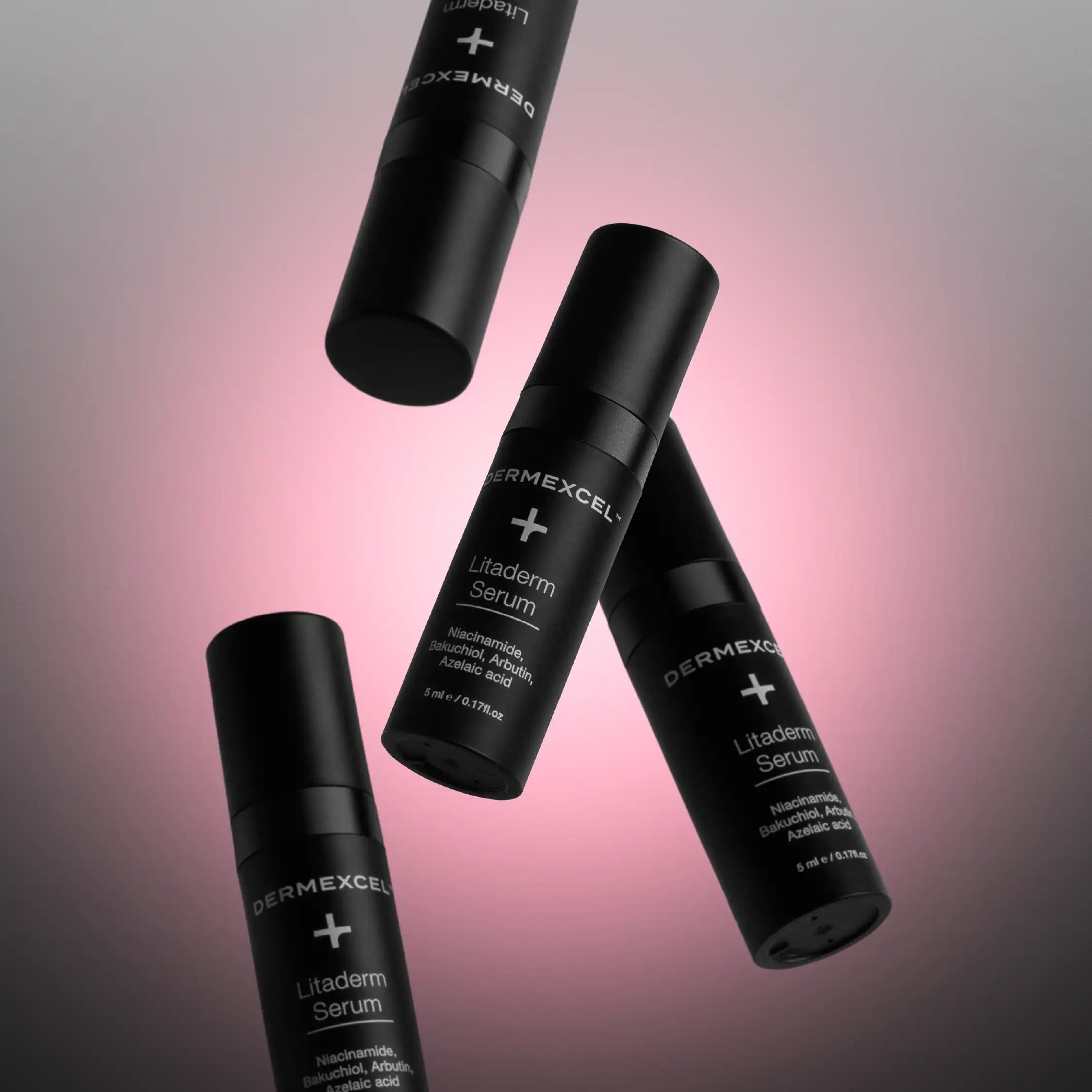







Pay interest-free installments from R 54.00 with various payment gateways selected at checkout.
SIZE: 5 mL




Choose options




Aqua, Macrogol, Azelaic acid, Nicotinamide, Glycerine, Arbutin, Jojoba Oil, Bakuchiol, Isostearyl Alcohol · Butylene Glycol Cocoate Ethylcellulose, Butylene glycol, Ceteth-20 · Cetyl Alcohol, Glyceryl Stearate, Steareth-20, C12-15 Alkane, Phenylpropanol, Propanediol, Caprylyl Glycol, Tocopherol
Litaderm Serum: Travel Size
product benefits
Skin barrier enhancement
Boost Collagen Production
Anti-Aging
Anti-inflammatory
Moisturizing
Anti-Microbial
Rosacea Relief
Pigmentation treatment
Indications for Litaderm Serum: Travel Size
Pigmentation
Dry Skin
Dull & Lifeless Skin
Rosacea / Red Skin
Acne / Breakouts
Enlarged Pores
Rough Skin Texture
Litaderm serum
mode of action

litaderm action
Litaderm Serum: Travel Size
all pigmentation phases
| arbutin | |
| bakuchiol | |
| niacinamide | |
| azelaic acid |
| arbutin | |
| bakuchiol | |
| niacinamide | |
| azelaic acid |
| arbutin | |
| bakuchiol | |
| niacinamide | |
| azelaic acid |
| before melanin production | during melanin production | after melanin production | |
|---|---|---|---|
| arbutin | |||
| bakuchiol | |||
| niacinamide | |||
| azelaic acid |
pigmentation
treatment steps

Bakuchiol

Azelaic acid and Arbutin

Niacinamide

Azelaic acid
Rosacea
Stages and treatment objectives




Testimonials


Not sure which products you need?
Find your regimen
Assessment
Submit your free Dermal Diagnosis™ Assessment
Treatment Plan
Receive your Free Personal Profile and Treatment Plan
Confident Skin
Start your Simple and Effective journey to Confident Skin!



















